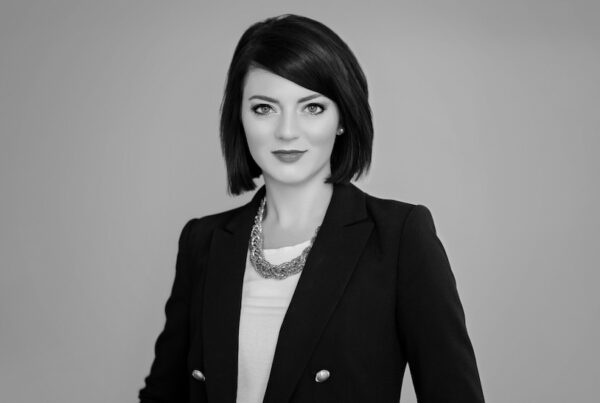News >

OMG Chief Talent Experience Officer Kate King talks to AdAge about helping talent improve mental health
May 17, 2023 | By Lindsay Rittenhouse
The pandemic sparked a focus on mental health in the ad business, an industry known for its churn-and-burn nature. But now with the shaky economy and increase in agency layoffs, along with the emergence of generative AI creating new concerns around job security, shops are once again reevaluating how they’re taking care of their people.
Some are deploying AI into their mental health programs while others are offering on-call specialists including psychologists for employees to chat with whenever they need.
“The business that I grew up in was: ‘Shut up, keep your head down, plow through the work and if you’ve got problems, go home and tell your wife your troubles, don’t talk about it at work,’” said Jeff Graham, president and chief marketing officer at Denver ad agency Cactus. “The difference is now we’re talking about it. As a dad of a young copywriter in Los Angeles, I am so grateful that she works in the business today with dedication to balance and mental well-being of employees.”
For Cactus, mental health has been at its core since its founding in 1990 by CEO Joe Conrad, who started the shop to build brands and causes he believes in. It’s a passion point for Conrad, who also founded You@College, a platform for college students to access health and well-being solutions.
Cactus built out a version in 2021 for its employees to access mental health resources whenever they need and, in honor of Mental Health Awareness Month, the agency is now expanding that platform to give out free to any ad agency that wants it.
Conrad said Cactus will customize the platform for agencies, as well, so a company’s specific health benefits and programs can be included on its site for its employees to access.The Cactus platform includes resources for managing everything from stress to substance abuse. It was built with a clinical psychologist who is on staff and splits time between the platforms and the agency, and who is available for employees to talk to at any time, as well.
On call professionals
Similar to Cactus, agencies are increasingly bringing on mental health professionals, including psychologists and other individuals, for employees to talk to as needed.
Independent ad agency RPA works with FZ Coaching’s Felicia Zigman, an outsourced HR professional, to give its employees mental health support.
Zigman said she started working originally with RPA’s leadership four years ago, but recently started offering office hours to the agency’s employees to give them space to come to her to talk about anything—personal or career-related—without fear of repercussions.
“I’m intended to be a resource for people,” Zigman said. “I’m external so it’s completely confidential. You can air grievances, talk about next steps in your career.”
apps like ChatGPT taking jobs such as copywriting.
“There’s an added layer of ‘is AI going to take my job?’ That’s a big issue I see across the board,” she said.
Holding company WPP expanded its “Mental Health Allies” program, a collective of more than 130 trained volunteers who can support colleagues in times of need, to the U.S. in 2021 after a successful pilot in the U.K.
“They’re not counselors, so they don’t diagnose or give clinical advice, but they do give people a space to be heard when they need it,” a WPP spokesperson said.
WPP’s GroupM also has its “Employee Assistance Program,” which workers can call into confidentially to get support, guidance and referrals for a variety of needs.
Interpublic Group of Cos.-owned McCann pays to give its employees access to Talkspace, an online and mobile therapy company that lets people communicate through text or video with a therapist.
Megan Streba, senior director of people experience for The Variable, said the agency provides eight free, face-to-face counseling visits through its employee assistance program. “We believe it’s important to remove financial barriers when it comes to accessing mental health services,” Streba said.
Jonathan Schoenberg, executive creative director and partner of independent agency TDA Boulder, said the shop “provides employees with free, confidential, mental health support,” with around-the-clock access to therapists.
Accenture’s “Mental Well-being Hub” also includes access to more than 12,000 mental health “allies” across the world.
AI-powered programs
Generative AI may be fueling some of the anxiety that’s out there right now, but artificial intelligence is also helping some agencies provide better mental health programs.
Publicis Groupe said it began working with Arianna Huffington’s Thrive Global, a behavior change technology provider, via its global AI connectivity platform, Marcel.
“This partnership works to address burnout with sustainable, science-based solutions that unlock employee performance and enhance well-being for the entire Groupe via workshops, guides and micro-learning experiences across six key focus areas: Thriving Performance, Working Families, Thriving Parenthood, Thriving Across Our Differences, Thriving Together,” Publicis said.
Some of the programs within Thrive Global and Marcel include 60-second breathing and focus exercises, according to the holding company.
Also through Marcel, Publicis said it launched a dedicated “Working With Cancer” hub with resources, manager trainings and services for Publicis employees to share their workspace with people with cancer and their caregivers. Publicis Groupe Chairman-CEO Arthur Sadoun revealed he had a surgery to remove a cancerous tumor in his neck last year and has discussed how many testimonials he received from people in the industry who also have been touched by cancer and the stress it causes not only in their personal lives but professional, as well.
Some agencies have additional resources dedicated to specific groups, including parents, the LGBTQ+ community, Black employees and people with disabilities or battling certain diseases, as Publicis did through its “Working with Cancer” hub.
Just as the pandemic shone a light on the stresses the ad business places on people’s well-being, the murder of George Floyd and the rise in the Black Lives Matter movement in 2020 also revealed just how intertwined social issues and diversity, equity and inclusion are with mental health.
GroupM said it started offering a session this month on inclusive family-building benefits for the LGBTQ+ community.
Independent agency Big Spaceship partners with The Adversity Group (TAG), a diversity, equity and inclusion consultancy, “to facilitate agency-wide trainings and discussions around current events and diversity-related topics to offer crew a safe space to have conversations,” said Kristin Daversa, senior VP of people and culture.
WPP’s VMLY&R partners with Bright Horizons to provide backup child, adult, elder and even pet care to its employees in need of those services, as having to find family care is another big weight on people’s shoulders.
For backup child care, for example, VMLY&R said it offers 10 days of care, plus 10 additional days within the first year of birth or adoption, for between $15 and $25 a day per child. If care is unavailable within the Bright Horizons network, employees get reimbursed up to $100 a day for finding their own childcare, according to the agency.
OMG’s Global Chief Talent Officer Kate King said the company has been particularly focused on expanding resources for parents and caregivers. It partners with Peace at Home Parenting Solutions and the Working Parents Network to host “safe space discussions” for its working parents around events such as school shootings.
“Today’s environment and recent events have created new challenges and concerns for caregivers and parents,” King said. “We recognize the emotions of our employees and do not expect it to be just another day at work. In addition to these sessions, resources are provided including handouts and videos on how to help your children feel safe in an unpredictable world, access to our EAP assistance and tips to manage distress from a traumatic event.”
With rising inflation causing financial stress, some agencies also introduced additional monetary perks for employees.
TDA Boulder said it increased its employee healthcare insurance coverage to cover 100% of costs. The Variable invested in Pocketnest, a financial wellness platform for employees struggling with economic hardships amid the shaky economy. OMG said it also has specific apps focused on the struggles facing Black workers as well as parents and their kids, and some that provide financial guidance for cultivating better saving habits and dealing with debt.
Rise in meditation and sleep apps
Meditation and sleep apps such as Calm and Headspace soared in popularity at the start of the pandemic, and many agencies are continuing to give their employees access to these platforms for free.
Independent ad agencies such as RPA and Giant Spoon, as well as holding companies including Stagwell, offer employees memberships to Calm. OMG recently partnered with Headspace to offer its employees access to that meditation and sleep app, which also provides kid-friendly content for parents and caregivers. McCann and experiential agency Giant Spoon also pay for employee access to Headspace. GroupM gives its employees free access to Ginger, an app that offers counseling and coaching via texts and video, as well as other means. Independent agency Pereira O’Dell said it offers various apps such as Talkspace, Ginger and Happify


